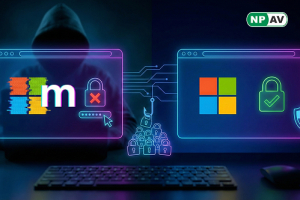FakeBat Loader Malware Spreads Widely Through Drive-by Download Attacks

In the ever-evolving landscape of cybersecurity threats, the loader-as-a-service (LaaS) known as FakeBat has emerged as one of the most pervasive loader malware families in 2024. Distributed using the drive-by download technique, FakeBat has become a formidable tool for cybercriminals. Findings from cybersecurity firm Sekoia highlight the widespread impact and sophisticated methods employed by this malware.
FakeBat, also known as EugenLoader and PaykLoader, is a loader malware that primarily aims to download and execute next-stage payloads. These payloads include various types of malware such as IcedID, Lumma, RedLine, SmokeLoader, SectopRAT, and Ursnif. The loader is designed to bypass security mechanisms and allows cybercriminals to generate builds that can trojanize legitimate software. It also features an administration panel to monitor installations over time.
Distribution Methods
FakeBat's distribution relies heavily on drive-by download attacks, which involve enticing users into downloading malicious software through deceptive means. The primary methods used include:
1. Search Engine Optimization (SEO) Poisoning
Cybercriminals manipulate search engine results to make malicious websites appear as top search results. Unsuspecting users click on these links and are tricked into downloading malware-laden installers.
2. Malvertising
Malicious advertisements are placed on legitimate websites. When users click on these ads, they are redirected to sites hosting FakeBat, where they are prompted to download fake software updates or installers.
3. Compromised Sites
Legitimate websites are hacked to include malicious code. Visitors to these sites unknowingly download malware disguised as software updates or legitimate applications.
4. Social Engineering Schemes
FakeBat also spreads through social engineering tactics on social networks, convincing users to download malicious software by impersonating trusted sources.
Evolution of FakeBat
Initially, FakeBat used an MSI format for its malware builds. However, recent iterations have shifted to an MSIX format and included a digital signature with a valid certificate to bypass Microsoft SmartScreen protections. This evolution highlights the continuous adaptation of the malware to evade detection and improve its distribution efficacy.
Pricing Model
FakeBat is available for purchase on underground forums, with prices reflecting the added sophistication of its newer versions:
- MSI Format: $1,000 per week or $2,500 per month
- MSIX Format: $1,500 per week or $4,000 per month
- Combined MSI and Signature Package: $1,800 per week or $5,000 per month
Detection and Targeting
Sekoia's analysis detected different activity clusters disseminating FakeBat through various approaches:
- Malicious Google Ads: Impersonating popular software to trick users into downloading FakeBat.
- Fake Browser Updates: Distributed via compromised websites.
- Social Engineering Campaigns: Utilized on social networks to lure victims.
FakeBat's command-and-control (C2) servers are sophisticated, likely filtering traffic based on characteristics such as the User-Agent value, IP address, and location. This enables the targeted distribution of malware to specific victims.
Related Malware Campaigns
The rise of FakeBat coincides with other significant malware campaigns:
- DBatLoader (ModiLoader/NatsoLoader): Distributed through invoice-themed phishing emails.
- Hijack Loader (DOILoader/IDAT Loader): Propagated via pirated movie download sites, delivering the Lumma information stealer.
- Phishing Campaigns: Delivering Remcos RAT and leveraging loaders to distribute various malware strains.
Example of an Advanced Campaign
An example of a sophisticated campaign using Hijack Loader involved:
- Complex Infection Chain: Multiple layers of direct code-based obfuscation.
- Execution Mechanism: Utilized Microsoft's mshta.exe to execute malicious code hidden within a specially crafted file masquerading as a PGP Secret Key.
Protecting Against FakeBat
To protect against FakeBat and similar threats, users should:
- Be Cautious of Downloads: Avoid downloading software from unverified sources and be wary of unsolicited software updates.
- Use Security Software: Employ reputable antivirus and anti-malware programs to detect and block malicious activity.
- Update Regularly: Keep software and systems updated to patch vulnerabilities that malware could exploit.
- Educate Users: Raise awareness about phishing and social engineering tactics to reduce the likelihood of falling victim to such attacks.
FakeBat's rise as a loader malware highlights the ongoing sophistication of cyber threats. By understanding its distribution methods and evolution, users and organizations can take proactive measures to protect themselves. Staying informed and vigilant is crucial in the fight against such pervasive and adaptable malware.
For more information and updates on cybersecurity threats, stay tuned to reliable cybersecurity sources and follow best practices for online safety.
- Other (43)
- Ransomware (179)
- Events and News (28)
- Features (45)
- Security (502)
- Tips (83)
- Google (43)
- Achievements (12)
- Products (37)
- Activation (7)
- Dealers (1)
- Bank Phishing (58)
- Malware Alerts (289)
- Cyber Attack (374)
- Data Backup (15)
- Data Breach (215)
- Phishing (186)
- Securty Tips (9)
- Browser Hijack (30)
- Adware (15)
- Email And Password (88)
- Android Security (95)
- Knoweldgebase (37)
- Botnet (20)
- Updates (8)
- Alert (72)
- Hacking (84)
- Social Media (10)
- vulnerability (123)
- Hacker (95)
- Spyware (18)
- Windows (23)
- Microsoft (43)
- Uber (1)
- YouTube (4)
- Trojan (7)
- Website hacks (14)
- Paytm (1)
- Credit card scam (4)
- Telegram (6)
- RAT (12)
- Bug (4)
- Twitter (3)
- Facebook (12)
- Banking Trojan (15)
- Mozilla (2)
- COVID-19 (5)
- Instagram (4)
- NPAV Announcement (16)
- IoT Security (3)
- Deals and Offers (2)
- Cloud Security (12)
- Offers (5)
- Gaming (1)
- FireFox (2)
- LinkedIn (3)
- Amazon (5)
- DMart (1)
- Payment Risk (5)
- Occasion (3)
- firewall (4)
- Cloud malware (3)
- Cloud storage (2)
- Financial fraud (105)
- Impersonation phishing (1)
- DDoS (11)
- Smishing (2)
- Whale (0)
- Whale phishing (4)
- WINRAR (3)
- ZIP (2)
- Fraud Protector (92)
-
Mobile Frauds
(68)
- WhatsApp (19)
- AI (36)






